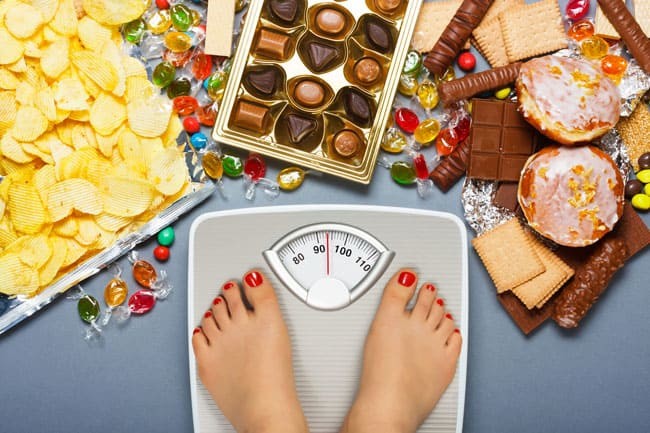Hi Everyone,
Today, I want to address a common, yet difficult, topic. I say its difficult, because, it’s what some of us find, to be the simplest, yet hardest thing to do – understand our relationship to food and address our weight issues, permanently.
Such a simple equation- eat less, exercise more, right?
Well, that’s what Dr. Chakravarty told me, when I was 7 years old and my mum took me to see him for the flu or some childhood ailment and he took one look at me, noticed my cute yet quite chubby body and said Grace “eat less, exercise, more!” I remember thinking even then, how’s that going to help the flu? Like really!
Anyway, mastering that equation has daunted me for decades and if being slim was that easy, why is the global weight loss industry, according to the Global Wellness Institute, worth between $574 and $647 billion US Dollars?
It’s clearly a complex area for many of us. Let’s face it!
But why? The truth is that it’s not just about what you eat or how active you are. For most of us, food represents so much more. It has become an emotional crutch, an anti-depressant, a social lubricant, a friend and a drug. When it comes to our relationship with food, there are many layers of dependency, many habits and many coping mechanisms that we need to release before we can create a right relationship with food and our bodies.
When I work with clients on Conscious Weight Loss, the first thing I have to assess or diagnose is whether they are a:
Normal Eater;
Dysfunctional Eater;or
Food Addict.
Once I diagnose, I can then recommend the appropriate treatment.This step is vital and usually, if not always, missing in the weight loss industry. This leaves most people who have weight issues, feeling terrible about themselves, when the real problem was that they were either misdiagnosed or not diagnosed at all.
I’m going to ask you to picture in your mind, or draw on a piece of paper, a line; and that will be our food and weight issues axis. At one end, on the far left, we have our normal eaters, then at the other end, over to the far right, we have food addicts. Along the axis, in all the space in between the two extreme points we have every variety and degree of dysfunctional eater.
Let’s go to the left, on our axis-
Who am I calling a normal eater?
ANSWER: People who don’t control their food.
Let’s go to the far right, on our axis-
Who am I calling a food addict (let’s say- a late stage, chronic food addict)?
ANSWER: Again, people who don’t control their food.
Interesting ha? Both ends are represented by the lack of control.
However, normal eaters don’t control their food, because they don’t have to. It doesn’t occur to them to control their food because they can self regulate through their connection with their body. Mechanisms such as appetite, feelings of fullness, hunger pangs and personal preferences, work for them. They can make choices. They adapt functionally on food and weight matters and they achieve the goals they set. They’re not preoccupied with food, fat body thoughts or calorie counting. Food is not love or some other surrogate to them. They have better things to think about. If they want to lose a few kilos they can turn to a fitness program or healthy eating plan with success. Diets work for them.
The Food Addict (at the far right of our axis) is a different matter. There are three stages of food addiction- early, middle and late stage. The late stage food addict, or chronic food addict is someone who, like the alcoholic on the park bench, has lost all ability to control their relationship with food. They don’t control not because they don’t have to, but because they simply can’t. They are powerless over their addiction and food is their drug. Even anorexics- who are the epitome of control- really lack control, because they, in fact, have no control over their under-eating. Anorexia is, in my clinical experience, one of the hardest eating disorders/ addictions to treat because – it creates the illusion of control in the under-eater while eating away at every organ in their body.
Early Stage Food Addicts and Middle Stage Food Addicts, are addicts who have not lost all power to control their food, yet. They get into a pattern of attempts to control inevitably followed by loss of control. They may think they are merely Dysfunctional Eaters because their behaviours are similar and they appear to have some measure of control. But if you analyse their genetics; their history with food; their food group choices; they are fundamentally different. Addicts are on the trajectory to complete powerlessness but Dysfunctional Eaters are not.
So, what about Dysfunctional Eaters? This group of eaters sit, on our axis, between normal eaters and food addicts. This is the category most people fit into.
Dysfunctional Eaters are a broad group- for example, compulsive dieters; emotional eaters; stress eaters; holiday eaters; recreational eaters; people with very poor habits around food and eating; people who habitually make poor choices for social, cultural, economic and personal reasons; people who are uneducated around nutrition; those who lack self esteem; foodies who overindulge as a means of finding pleasure or entertainment; those who escape or avoid through food; people who have body image obsession and craft their eating around their mental and physical obsessions; people who have entrenched unhealthy habits or poor discipline. These people are abusers of food or self medicators. Like people who go hard with booze but are not alcoholics.
It’s hard for them to find the motivation or discipline to change. However, if they do therapy work to process the feelings that they are medicating; if they minimise stress and frustration in their lives; improve their self esteem; change their social patterns, get engaged with self care, nutritional education, a great fitness program or lifestyle, then they can turn this around and become normal or healthy eaters. These people can regain a normal relationship with food.
How do you know if you’re a Food Addict?
Addicts cannot set a goal weight or a goal around food intake and achieve it on a long-term basis. It’s impossible or elusive or temporary. They think it’s lack of will power but it’s actually an overwhelming urge or craving that despite all judgment, reason, insight or consequence is stronger than their conscious desire to stop.
Food addiction is characterised by the following:
Denial
Deception
Preoccupation
Sourcing supply
Protection of supply
Attempts to control followed by loss of control
It is progressive and can be life threatening. The propensity towards addiction is inherited and runs in families. Alcoholic grandfather, overeater mother. It doesn’t have to be the same addiction.
Food addiction is both a substance and a process addiction.
The Substance Addiction is primarily to any or all of the following substances:
a) Sugar
b) Flour
c) Most refined carbohydrates
d) Fried foods
e) Individual binge foods- which are usually nuts, crisps, super rich health foods like tahini, rich dairy products
A Process addiction refers to addictive behaviours or thought processes as opposed to addictive substances. Sex, work, cleaning, hoarding and gambling are process addictions, while drugs and alcohol are, generally seen as substance addictions- (but really, even they have addictive rituals or processes attached to them).
The processes a food addict can get addicted to are:
a) Eating large quantities of food usually quickly or secretly; or
b) Grazing on food all day, so that you’re consuming something orally all the time. The mouth is rarely unoccupied.
c) Going to the fridge repeatedly, opening and shutting it, whether you grab something to eat or not; cruising shopping aisles whether you buy food or not; obsessively getting on and off the scales, obsessive exercising, purging, laxatives, calorie counting; moving your food around the plate; and other ritualistic behaviour around food.
WHAT IS THE SOLUTION?
4 STEPS:
1. Admit that you have a problem around food.
Get out of denial, excuses, apathy, hiding and minimising. Stop talking about your food or weight issues as a social conversation piece and treat it as a legitimate problem.
2.Identify the exact nature of your problem.
This is where you decide:
a) Are you a Normal Eater?
Someone who just has body image and self esteem issues but fundamentally your relationship with food itself is fine. If so then you need to get therapy or coaching on your negative self talk and limiting beliefs and address those.
b) Are you a Dysfunctional Eater?
When you overeat or under-eat, you find that it is usually a coping mechanism in response to difficult circumstances, or emotions or social patterns or poor habits triggering you to eat. When these behaviours are addressed or difficult circumstances pass, so does the urge to eat.
If so, conduct a thorough self -inquiry, work out whether you need an eating plan, an exercise plan, a therapy program? Treat the dysfunction and the use of food, as a coping mechanism, will diminish.
c) Are you a Food Addict?
Find the space to be deeply honest with yourself. Go through the traits that I’ve described and come to your own conclusion, are you or are you not a food addict? Are you someone who has a mental obsession coupled with a physical compulsion to consume addictive foods despite negative consequences? Even if you have loads of trauma that explains why you put on weight in the first place, e.g. poverty; deprivation issues or sexual abuse, your trauma triggered the addiction but now you have what’s called a dual diagnosis- unresolved trauma and an addiction. Both need treatment. Don’t think that if you heal all your wounds you can become normal around food. You can decrease triggers but you have to manage your addiction.
The only successful treatment for food addiction, I’ve come across, in 47 years, is twelve step programs. In particular, Food Addicts in Recovery Anonymous. But there are several others- Grey Sheet; OA; CEA. Google them. Anything based on the Twelve Step model is a step in the right direction for treating addiction. And the basic rule in twelve steps is total abstinence from your drug of choice. That means food addicts can never safely have the addictive foods again. Now, you know why no one wants to be classified a food addict- because an addict protects supply and will fight like hell to hold onto their drug of choice.
As I said this is my area of expertise, I’ve lived it and I’ve trained in it. I know this really is a difficult area for many of us and we need support and guidance, not just diet programs.
For more on FOOD ADDICTION: Please click the radio show icon.




